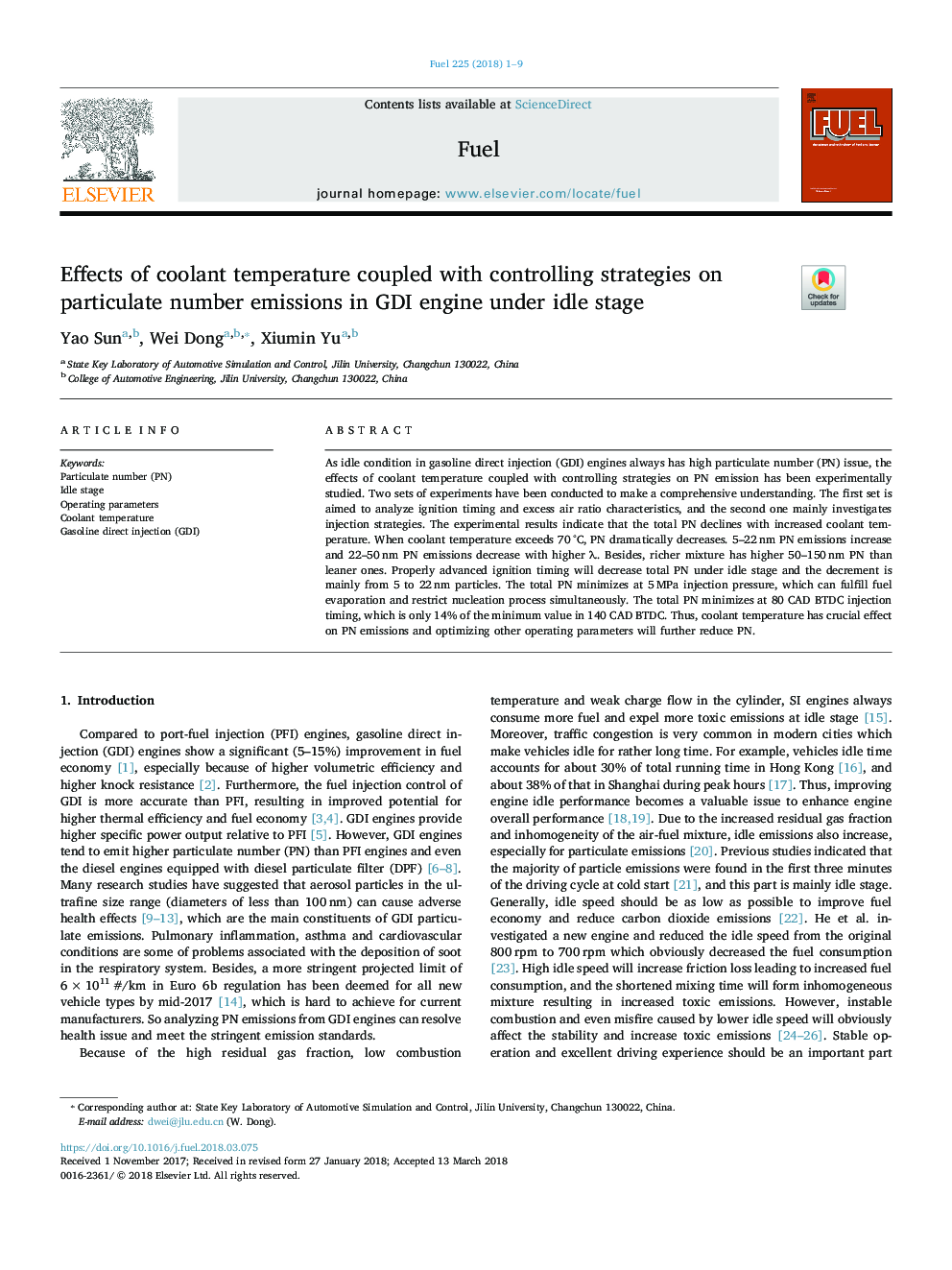| Article ID | Journal | Published Year | Pages | File Type |
|---|---|---|---|---|
| 6630968 | Fuel | 2018 | 9 Pages |
Abstract
As idle condition in gasoline direct injection (GDI) engines always has high particulate number (PN) issue, the effects of coolant temperature coupled with controlling strategies on PN emission has been experimentally studied. Two sets of experiments have been conducted to make a comprehensive understanding. The first set is aimed to analyze ignition timing and excess air ratio characteristics, and the second one mainly investigates injection strategies. The experimental results indicate that the total PN declines with increased coolant temperature. When coolant temperature exceeds 70â¯Â°C, PN dramatically decreases. 5-22â¯nm PN emissions increase and 22-50â¯nm PN emissions decrease with higher λ. Besides, richer mixture has higher 50-150â¯nm PN than leaner ones. Properly advanced ignition timing will decrease total PN under idle stage and the decrement is mainly from 5 to 22â¯nm particles. The total PN minimizes at 5â¯MPa injection pressure, which can fulfill fuel evaporation and restrict nucleation process simultaneously. The total PN minimizes at 80 CAD BTDC injection timing, which is only 14% of the minimum value in 140 CAD BTDC. Thus, coolant temperature has crucial effect on PN emissions and optimizing other operating parameters will further reduce PN.
Related Topics
Physical Sciences and Engineering
Chemical Engineering
Chemical Engineering (General)
Authors
Yao Sun, Wei Dong, Xiumin Yu,
